Sometimes all it takes to make a movie something special is a woman’s touch — even when that movie is about a hammer-wielding killer-for-hire. It’s not so much a question of gender as one of subtlety, and with You Were Never Really Here, Scottish writer/director Lynne Ramsay has proved that she can do more with a few silent frames than many filmmakers can with a bloody and protracted fight sequence. There’s no shortage of ultraviolent movies about hitmen and psychopaths lumbering onto cinema screens these days. What is in short supply are thoughtful movies that go deeper than gore-spattered torture porn to uncover an emotional core at the root of all the murder — and that’s what makes You Were Never Really Here such a welcome surprise.
The narrative plays out a bit like Taxi Driver meets Leon: The Professional with a dash of Nicolas Winding Refn thrown in for good measure. Joaquin Phoenix is our Bickle-by-proxy, a suicidal veteran with a pill problem and PTSD who moonlights as a hitman specializing in recovering victims of sex trafficking. Known only as “Joe,” he viciously dispatches his victims with a ball-peen hammer and uses the money he earns to take care of his aging mother, who suffers from some form of dementia. We only get to know Joe through flashbacks, usually turning up as he hovers at the edge of death while asphyxiating himself with a dry-cleaning bag. It’s not exactly a feel-good story, I guess is what I’m saying.
Phoenix is riveting as Joe, a tightly wound bundle of pain waiting to explode at the slightest provocation. And those provocations aren’t particularly slight, as his latest job — retrieving the underage daughter of a New York senator from an upscale brothel that panders to pedophiles — leads him into some murky conspiratorial waters. When the girl’s father tells Joe, “I want you to hurt them,” Phoenix conveys more menace with a dismissive glance than a two-page Tarantino monologue could ever get across.
But as good as Phoenix is here, the lion’s share of the credit must go to Ramsay — adapting her screenplay from a novella by Jonathan Ames — for knowing how to manage her salacious material in a way that elevates it beyond its pulpy genre trappings. Ramsay withholds when other writers or directors would divulge too much, carefully pacing out expository details and keeping Joe’s violent rampages just off the margins of the screen. The hammer might suggest Refn’s Drive or Park Chan-wook’s Oldboy, but in Ramsay’s hands, it becomes an altogether different sort of weapon. Rather than reveling in the bloodshed, she stages Joe’s most brutal sequence through silent security camera footage, forgoing gore in favor of mounting tension. It’s a masterstroke that perfectly encapsulates what distinguishes Ramsay’s work in comparison to other films of this ilk, and it hits home harder than the bloodiest hammer blow.
In playing her cards close to the vest, Ramsay has created something truly unique and given Phoenix his best role in years. You Were Never Really Here is a film that defies expectations just as confidently as it denies catharsis, an exercise in waiting and wanting that grabs the audience by the throat and never relents. The film follows up a breathtaking anticlimax with a genuinely remarkable final scene that will leave jaws on the floor, and while it stubbornly refuses to take predictable turns into the standard revenge-thriller mold, the payoff is all the more gratifying for Ramsay’s restraint. If you’re not there for You Were Never Really Here, you’ll have missed out on one of the most thought-provoking and unsettling films to hit screens this year. R for strong violence, disturbing and grisly images, language, and brief nudity.
Opens Friday at Grail Moviehouse.



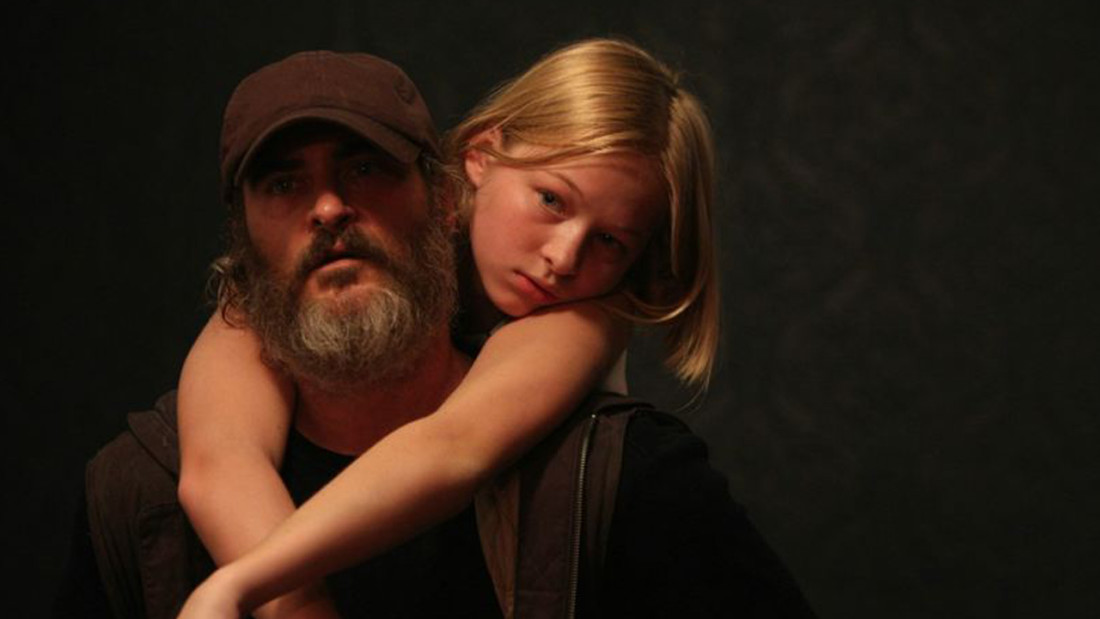
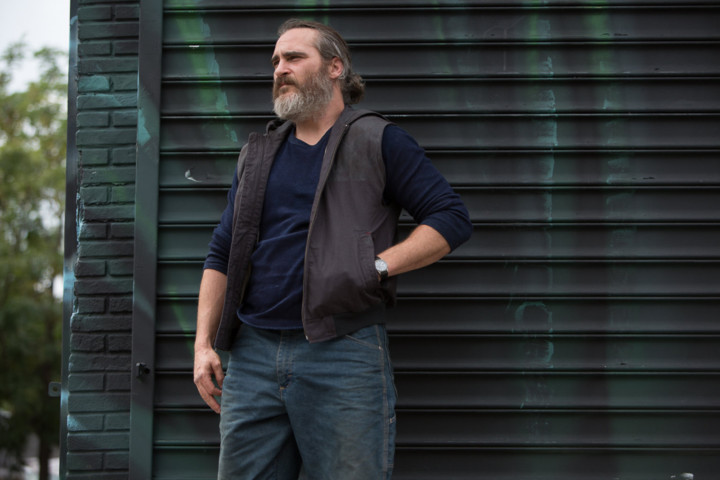
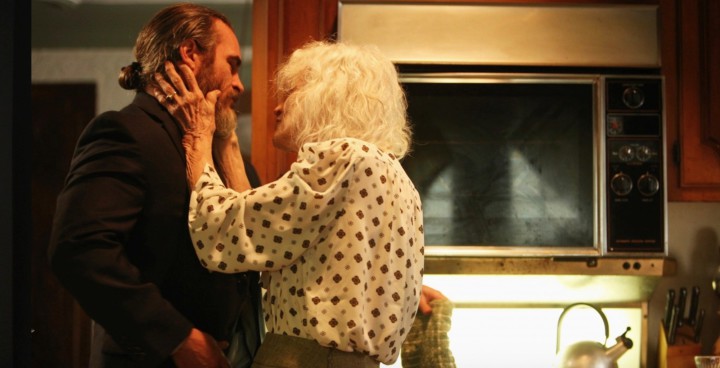
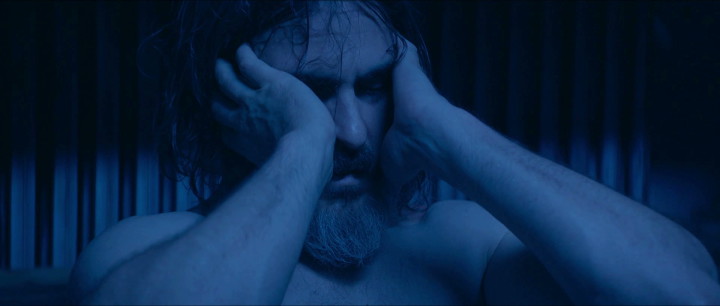
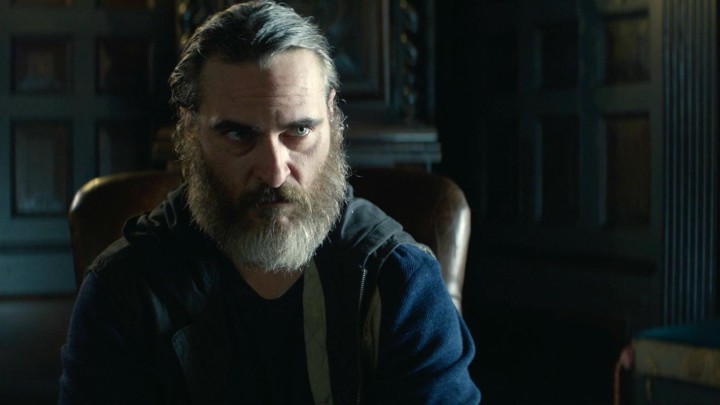
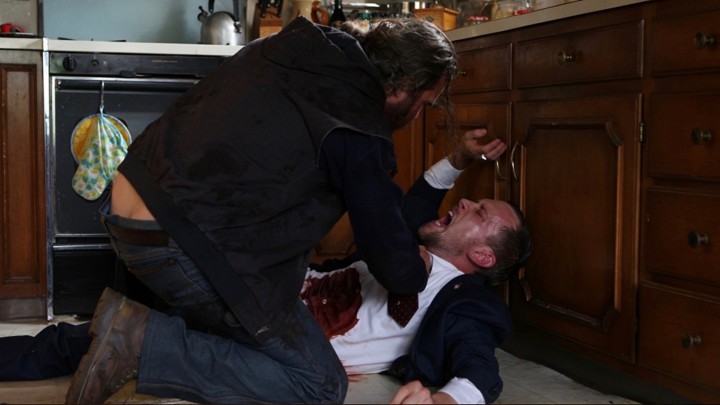
Wow, thanks for this great review, Scott. Subject matter might have made me pass on this one, but reading your praise and learning it was directed by Lynne Ramsay, who directed and co-wrote one of my favorite 2011 movies, We Have to Talk about Kevin , makes me Really Want to see this. Thanks to Grail for taking the risk to show it.